Manipulation! La stratégie du stress permanent…
Auteur : Auteur Mn.B pour les MoutonsEnrages
Ex: http://zejournal.mobi

La manipulation des foules et des peuples en occident.
Pendant les années 50 et 60 au moins, l’armée des Etats Unis a fait des expériences scientifiques pour essayer de savoir comment manipuler les comportements et les pensées des êtres humains, (voir le documentaire la stratégie du choc). Il est apparu entre autre, qu’un individu exposé à un choc, devient pendant un temps, très ouvert à la suggestion.
Le contrôle des médias et des informations qui nous parviennent, est le résultat d’études extrêmement précises faites par des anthropologues des neuropsychiatres. Études qui continuent probablement aujourd’hui sur la manipulation de la pensée et du comportement de l’être humain.
Pour être très clair, si Louis 16 en avait eu, en son temps, le contrôle total des médias, et s’il avait étudié l’anthropologie et la neuropsychiatrie, il n’y aurait jamais eu de révolution française. Il n’avait qu’à annoncer ou organiser, l’arrivée imminente des sarrasins, des attentats faits par les sarrasin sur le sol français, des images de gens égorgés, une épidémie Peste noire ou de choléra, et cela aurait relativisé l’intérêt de prendre la bastille, on aurait peut être même eu le slogan « je suis Louis »…

Voilà pourquoi.
Pour comprendre le fonctionnement du cerveau humain, il faut se souvenir que l’être humain, et ses ancêtres, ont vécu des millions d’années dans un décor, qui a été à très stable sur le plan visuel et sonore. L’être humain a toujours vécu en groupe, dirigé par un chef, peut-être doit on dire un mâle dominant.
Tout d’abord revoyons la définition scientifique de deux des trois cerveaux de l’homme.
LE CERVEAU REPTILIEN (source http://tecfa.unige.ch/tecfa/teaching/UVLibre/0001/bin27/c11.htm)
Il est appelé le cerveau primaire ou primitif ou encore cerveau archaïque. Les êtres humains avaient à l’origine, essentiellement un premier cerveau reptilien dont l’homme conserve encore bien des instincts de base (dont l’instinct de conservation). Certains animaux (vertébrés inférieurs, reptiles…) sont régis uniquement par ce cerveau. Il est la source des comportements primitifs qui répondent à des besoins fondamentaux. Il assure entre autre la sauvegarde de l’individu et de l’espèce.
Ces comportements sont incapables d’adaptation et restent insensibles à l’expérience du fait que le cerveau primitif n’a accès qu’à une mémoire à court terme.
Le noyau dit » amygdalien » en particulier commande l’agressivité, le souci du territoire et de sa défense.
LE CERVEAU LIMBIQUE.
Le cerveau viscéral de survie, surnommé ainsi par Mac Lean (1), est en étroite relation avec les centres des pulsions et des émotions. C’est le centre physiologique des émotions et donc le système dominant de l’affectivité.
Chez l’être humain, ..; son fonctionnement domine l’affectivité et les processus de la mémoire » Henri Laborit. (2)
Comme le cerveau reptilien, il ne s’exprime pas verbalement mais peut exciter le cortex qui lui, s’exprime par la parole.
Sa fonction essentielle est la survie par une bonne adaptation à l’environnement social : empathie, statut social, intégration à un groupe, convictions et croyances, sentiment de sécurité…
Principales lois physiologiques attribuées par les biologistes au cerveau limbique.
A- Le système limbique est imperméable à toute logique.
B- Le cerveau limbique agit comme un filtre, il a un rôle sélectif et détectif : toute information passe d’abord par le limbique qui filtre l’information et excite le cortex selon le filtre lui-même lié aux tonalités émotionnelles de l’information (intérêt, sécurité, plaisir, motivation, ….) Les émotions déclenchées par des stimuli agissant sur le système limbique ne sont pas sous le contrôle du cortex. La peur, par exemple ne disparaît pas par voie de raisonnement. Le cerveau limbique a une certaine autonomie par rapport au cortex: il peut bloquer toute réactivité des zones corticales, et anesthésier les infos déplaisantes qui n’atteignent pas le cortex mais il peut aussi stimuler certaines zones du cortex. La communication est donc unidirectionnelle.

Le cerveau primaire et le cerveau limbique sont donc, l’un incapable de toute adaptation et l’autre imperméable à toute logique…
C’est le cerveau limbique qui reçoit toute information qui nous parvient et qui la filtre. Il l’a la transmet ou pas au néo cortex. Après un choc ou une très forte émotion, il faut quelques heures ou quelques jours pour que le néo cortex, pour que nos esprits « logiques » reprennent la main sur notre comportement.
La technique adoptée par le système médiatique occidental est simple. Sur un fond de chômage de masse, d’épidémies fictives, de SIDA, qui pré-conditionnent l’individu au stress, à une insécurité permanente qui réactive nos instincts de survie, on nous abreuve d’informations qui s’adressent aux cerveaux limbiques et primaires. Par définition, quand les cerveaux limbiques et primaires fonctionnent, ils bloquent le fonctionnement du néo-cortex. C’est à dire, qu’on empêche le néo-cortex de réfléchir, d’analyser, en nous maintenant dans un genre de stress, de choc, de survie de soi même et de sa progéniture, ou d’euphorie, joie, ravissement, de satisfaction de soit, de compassion. L’individu, les peuples doivent être toujours en stress permanent, insécurité, épidémie, terrorisme, invasions d’immigrés fictives ou organisées. Oui oui, j’ai bien dit organisées.
Et donc, on a pas fini d’avoir des débats sur l’identité nationale, le mariage pour tous, la fin de vie, le droit aux enfants pour couples homo, sur le clonage humain, etc… Bref des débats de « société » pour nos cerveaux limbiques et primaires.
On aura jamais un débat sur la dette : on paye quoi, à qui, jusqu’à quand? Ou alors : on ne doit aucun argent puisque l’argent qu’on nous a prêté n’existait pas. Le simple fait de nous l’avoir prêter, a créer cet argent. Et si on ne rembourse pas, les banques ne perdent rien, puisque qu’elle nous ont prêté aucun argent c’est notre prêt qui l’a créer etc.
Au contraire, les faits divers sordides qui nous inondent. On est choqué, on s’indigne, on se scandalise. L’info va souvent très loin dans l’étalement du dégueulasse et du sordide. On nous exhibe régulièrement des malades pour le téléthon. C’est le cerveau limbique qui absorbe ces images de peine, de compassion, de douleur et donc qui bloque à chaque fois le fonctionnement du néocortex qui analyse et réfléchi.
Ce genre d’informations ont pour but de nous mettre en mode stress « survie de soi ou de sa progéniture », avec une implicite auto-glorifications de soi même et ces propres valeurs ou une joie qui n’a aucune utilité. La télé surdose le fonctionnement des cerveaux limbique et primaire.
Notre cerveau aussi est sollicité sur la survie de l’espèce, la protection du territoire (cerveau primaire) épidémie, catastrophe naturelle, et puis tout ce qui a trait au débat sur l’islam, l’intégration, Daesh, le port du voile, Ébola, H1N1, le Sida, le réchauffement climatique et vous verrez par vous même, il y en aura tant d’autres. Cela dure un temps, comme Ebola ou H1N1 et hop ça disparaît.
Il apparaît clairement que le débat sur l’immigration, l’islam fait réagir le cerveau primaire sans son » souci du territoire et de sa défense « qui est un de ces instincts le plus puissant. Nous allons donc y avoir droit encore longtemps. Ce type d’information, la fabrication de ce type d’événements devient sans que nous le sachions un message prioritaire pour nos cerveaux.
Tout le système médiatique vise à supprimer tout esprit critique. Et quand même on aurait quelque chose à dire de différent, on est étiqueté « complotiste ».
Les révolutions, mouvements de masse des populations sont neutralisés par ces informations permanentes, voire, quand la tension devient trop grande, on sort une pseudo épidémie, H2N1 ou Ebola, pour recadrer le peuple par la peur et survie. C’est exactement ce qu’il s’est passé en 2009, quand hors syndicats des ouvriers de toute l’Europe ont voulu s’unir…. La grippe porcine ou mexicaine a calmé tout le monde.

L’information des média grands publics, est le résultat d’études sur la manipulation des populations, basées sur la neuropsychiatrie et l’anthropologie, qui visent à nous empêcher de réfléchir avec des messages prioritaires pour notre cerveau limbique ou primaire.
Tout ce système de lavage de cerveau des populations, discret et permanent, ne sert que la survie d’un système économique et politique aberrant, qui vise à la domination mondiale par une petite minorité dirigeante.
La plupart de ces problèmes n’ont jamais vraiment existés, sont très largement exagérés ou sont carrément organisés. Afin de maintenir le groupe en état de choc, de stress, de volonté de survivre, donc sans réflexion ni analyse sur le système et surtout, sans contestation.
L’être humain devant une crise une catastrophe, une attaque, a le réflexe vital et ancestral de se regrouper, en plus d’être immédiatement, après le choc, facilement suggestionable. Les gouvernements occidentaux accentuent volontairement l’effet de choc et l’effet de groupe. Tout de suite, pendant la période de choc, on nous livre l’analyse, les coupables et l’enquête est bouclée, pendant le temps où le cerveau est suggestionable. On l’a vu pour le 11 septembre, pour l’affaire Charlie. Et le troupeau s’est bien rassemblé, tel des gnous dans la savane, attaqué par un épouvantail de lion.
Il est facile de comprendre que l’être humain, n’ayant pas de griffes de sabots, ne courant pas très vite, n’a pu survivre, au fil de son histoire que par l’appartenance à un groupe, une tribu, un troupeau, le plus vaste possible. L’appartenance au groupe est pour notre inconscient synonyme de survie, et aussi un signe de force. Surtout que les prédateurs, il y a quelques milliers et millions d’années étaient bien plus nombreux et autrement plus dangereux que les animaux d’aujourd’hui.
Mais il semble surtout, que le plus grand ennemi de l’homme, au fil de son histoire soit l’homme lui-même, c’est pour cela qu’il a cet instinct puissant du territoire et des ressources comme éléments essentiels à sa survie.

On a vu tous ces Charlie (au pluriel on dit charlots ?) qui n’ont jamais vu une guerre dire « on a pas peur ». Et oui l’appartenance au groupe le plus grand possible donne un sentiment de sécurité et de force. Dès le début de l’affaire Charlie Hebdo, on a assisté à la fabrication médiatique d’un « groupe de survie » autour de la phrase imposée : je suis Charlie.
On crée un groupe de survie autour de soi-disant valeurs de défense du groupe, même à travers les émissions police-justice. On exhibe le bon droit du groupe principal, ces moyen de défenses, afin que, implicitement on adhère à ce groupe. On nous fait croire en permanence qu’on est attaqué, ou en danger, ou protégé par le groupe.
Isoler quelqu’un du groupe, le bannir c’est le condamner à mort très rapidement. Cela crée un malaise chez la personne bannie, que beaucoup ne peuvent supporter. D’ailleurs la plupart des gens réintègrent le groupe rapidement. L’appartenance au groupe devient une priorité supérieure à toute autre. Savoir si le groupe a raison ou tord n’a aucune importance, il faut suivre le groupe, car il est dans notre inconscient la survie.
Aucun animal qui vit en groupe ne peut quitter le groupe seul. Gnous, Zèbres, Singes. Quitter le groupe s’est de mettre en danger. Il en est ainsi pour les humains.

Vis à vis de Vladimir Poutine ou de l’Iran par exemple, les médias principaux veulent à tout prix nous faire croire qu’ils sont isolés sur le plan international. Ce n’est pas innocent. C’est pour éviter que quiconque ne se rallie à eux, qu’on les déclare « banni ». Pour la Chine on ne le dit pas, par un groupe de .1.5 Milliard d’habitant ne peut pas par définition être isolé. D’ailleurs vous avez remarqué que « la communauté internationale c’est surtout l’Europe et les USA pour ne pas dire les blancs ». Ils se sont autoproclamés communauté internationale.
Attaquer le groupe c’est souvent dans l’inconscient collectif, remettre en cause la survie de chacun de ces membres. C’est pour cela que le groupe est assez virulent avec les contestataires.
La bipolarisation de la politique nous vient des États Unis et elle a envahi l’Europe. Et finalement aujourd’hui, nous avons tous compris, que les deux groupes principaux sont exactement les mêmes, alors on introduit un épouvantail, qu’on gonfle ou qu’on dégonfle à volonté, le FN, pour ramener le troupeau là ou il doit être. Ainsi sont verrouillées les portes du pouvoir, aucun petit parti ne peut exister et grandir car l’épouvantail FN doit nous ramener au vote utile, au vote barrage.
On pourrai faire aussi tout un chapitre sur l’utilisation de la parole répétée, car le cerveau de l’homme a cette étrange faculté de prendre pour vrai ce qu’on lui dit un certain nombre de fois. Surtout si le néo-cortex est fatigué. « Les grecs ne payent pas leurs impôts »… Et hop ça devient une vérité, une évidence pour la majorité. La pensée unique a un effet certain sur les hommes. Voila pourquoi tous les médias diffusent tous les mêmes informations.
Le cerveau humain n’est pas adapté à la surabondance d’images extrêmement complexes, et en mouvements et de sons qui sont plus des bruits que des la musique. Cela fatigue le néo cortex et l’épuise. Rien dans le décor millénaire de l’homme n’est comparable à la complexité, la profusion, la rapidité des images et des sons que nous recevons de notre petit ou grand écran. Bien souvent d’ailleurs, par la publicité. Mais pas uniquement. Tous les génériques des flashs infos sont étonnements complexes, images superposées, fractales et en mouvements, musique « impressionnante ».
Les plans séquences des films et des séries américaines récentes sont beaucoup plus courts depuis quelques années. Dans les années 40 50 60 70 80 les plans séquences duraient souvent 10 secondes ou bien plus. Ces plans séquences ultras courts (moins de 1 secondes) ont pour but de fatiguer le néo cortex et diminuer notre capacité de réflexion profonde. Le néocortex s’habitue à survoler les choses sans entrer dans le détail. (Comparez Mission Impossible, Zorro, Amicalement Votre, Colombo, Magnum etc à New York Unité Spéciale, Les Experts, RIS Police Scientifique)
Étant donné que tout cela se passe sous nos yeux, tout cela est très facile à vérifier. Il suffit de ne plus regarder de séries, d’émissions ayant des plans-séquences courts, ni génériques et clips vidéo visuellement complexes, et vous verrez par vous même que cela change la profondeur de votre propre réflexion au bout de quelques jours. Bien entendu il faut systématiquement arrêter de regarder et d’écouter les pubs. Cela doit être un réflexe : détourner son regard des pubs, et couper le son pendant la pub. Les pubs contiennent trop d’images d’infos de sons, de suggestions de sensations, d’émulations de nos désirs. Elles contiennent aussi beaucoup trop de schémas de comportements sociaux familiaux ou de couple qui finissent par nous influencer.
Il y a bien trop d’émissions sur les enquêtes de police justice, ou de séries policières pour que cela soit innocent. On doit être en état de stress permanent et nous habituer à approuver le système. Et on a même droit à avoir de la compassion pour les victimes et de l’indignation contre les coupables, ce qui fortifie notre ego social, moral ou spirituel. C’est comme cela qu’on se fait discrètement laver le cerveau.
Ben Laden tué par les américains en 2011, sans images sans témoins, sans tombe. Les 25 marin’s qui sont supposés l’avoir tué meurent à leur tour deux mois plus tard, le premier ministre du Pakistan avait pourtant annoncé en 2008 que Ben Laden a été assassiné.
Oussama Ben Laden est mort depuis longtemps selon Benazir Bhutto
Et personne ne se pose de question ? Pour une raison simple. Notre inconscient a été formaté ainsi : Se mettre à l’écart du groupe c’est se mettre en danger. Beaucoup de ne peuvent pas imaginer remettre en question le groupe. Quelque soit le mensonge que nous vivons.
Et pour 11 Septembre et l’attentat de Charlie, comme par hasard, on découvre les auteurs immédiatement, juste après le choc, quand le cerveau est plus ouvert à la suggestion : le passeport pour le 11 septembre, la carte d’identité pour Charlie. C’est grâce à cela qu’on reconnaît l’arnaque. Parce qu’elle utilise tous les ingrédients de la manipulation mentale de masse.
Les informations qui sont traitées par les cerveaux primaires ou limbiques sont hélas physiologiquement prioritaires sur les autres activités que sont l’analyse et la réflexion. La télé ne laisse plus fonctionner le néocortex. C’est comme ça que l’on manipule les foules et les peuples en Europe et aux États-Unis.
Dans le cas de l’affaire Merah, on voit qu’ont été utilisés la stratégie du choc, plus des appels au cerveau primaire à travers des références racistes, que le cerveau primaire comprend comme des dangers, des menaces sur l’espace de survie, et le cerveau limbique comme la survie de soit même et de sa progéniture. Et bien entendu la dernière couche est faite sur la peine la compassion qui excitent encore le cerveau limbique : analyse et esprit critique : ZERO.
Merah cerné par le GIGN sort de l’appartement passer un coup de fil, sans que la police le voit, et il revient dans l’appartement se faire abattre bien gentiment par les flics. On nous a « vendu » une information, mais en même temps cette information est diffusée dans un emballage qui empêche le cortex de faire un travail d’analyse, de réflexion et d’esprit critique pour la plupart des gens.
C’est toujours comme cela que les informations sont traitées, aucune ou très peu d’analyse, juste de l’émotion, de l’indignation, de la joie, de la peur, de la vengeance de la compassion. C’est toujours le choc et le stresse qui priment. Après cela, pour ceux qui nous gouvernent c’est simple, en ne diffusant que des infos qui s’adressent au cerveau primaire ou limbique, on fait de nous des êtres d’une facilité déconcertante à manipuler et à gober un peu tout et n’importe quoi. Après un choc de masse, Il est très important aussi de nous donner l’explication pendant la période qui suit le choc, pour qu’elle entre dans notre cerveau sans aucun esprit critique.
Qui fait ces choses là? Ce n’est pas bien compliqué à savoir. Regardez qui inonde le monde d’images de séries de films et de pub. Regardez le logo de Paramount avec sa montagne pyramide, celui de Columbia avec la femme debout sur une pyramide en escalier, les nuages en forme de pyramide et la lumière de son flambeau à la place de l’œil de la pyramide. Mais aujourd’hui ces logos sont cachés, bien plus qu’autrefois.
Est ce qu’une émission de télé (le grand journal ou le petit, c dans l’air, ou spécial investigation ou capital), un journal (le monde, libération, le nouvel obs, Marianne, le canard enchainé ) nous a-t-il un jour parler de Vanguard group, Blackrock, FMR, ou State Street ?
Actionnaires principaux de la Fed, Monsanto, Apple, Google, Microsoft, IBM, Exxon, Mac Donald’s, Pepsico, Mondelez International (n*1 de l’agroalimentaire mondial), Paramount, Goldman Sachs, Bank of New York Mellon, City Group, Jp Morgan Chase, Honda, US Bancorp, Philip Morris, Imperial Tobaco, Bank of America
Actionnaires de : Nasdaq, Facebook, Altice (Patrick Drahi), Yahoo, Wells Fargo, Deutche Bank, Banque Lazard, Morgan Stanley, HSBC, Lockheed Martin, Alcoa Inc. Altria Group, AT&T, Boeing, Washington Post, The New York Time, E bay, Amazone, Caterpillar, Coca- Cola, Pepsi co, General Electric, Rolls Royce, Trip Advisor, Unilever, Nestlé, Siemens, Allianz, General Motors, Ford, Renault, Daimler, Chrysler, Fiat, Bmw, V A G, Harley Davinson, Halliburton, Hewlett-Packard, BASF, Intel, Motorola, Nokia, Cisco, Xerox, 3M, Johnson & Johnson, Novatis, Merck & Co, Pfizer, Bayer, Roche, Teva, Sanofi, Procter & Gamble, Time Warner, Walt Disney, Viacom, CBS Corporation, NBC Universal, E-bay, Amazone,Samsung, Mitsubishi, LG, Vivendi, Nestle,Total, BP, Publicis, AirBus Eads, Axa, Bnp Paribas, Illiad, Havas, etc, et de la plupart des sociétés européennes cotés en bourse et des agences de notation. Il n’est pas possible de les nommer toutes il y a en des milliers.
Quand on nous parle « des marchés financiers, on sait mieux de qui on parle ». Mais le plus troublant, c’est que les propriétaires, les dirigeants de ces 4 grands groupes n’existent pas. Ils sont les uns propriétaires des autres. Ce qui est étonnant et tout à fait suspect.
La télé, les médias se moquent de nous, on nous traite comme des bestiaux.
Pourquoi ces gens ont décidé de diriger l’être humain ? L’être humain, surtout le mâle, est un être extrêmement violent dangereux, imprévisible. Surtout s’il est bien nourri. Souvenez de 1968.
Le plein emploi, la croissance, l’espérance de vie qui s’accroît, pas de Sida, pas de Daesh ni Al Qaïda, ni immigration de masse. Et pourtant c’est à ce moment la que le peuple est descendu dans la rue contre ces dirigeants. L’homme bien nourrit et en paix, est un problème pour les dirigeants.
Aux USA, les dirigeants ont compris les leçons de la contestation de la guerre de Viet Nam.
Pour l’Irak, d’abord on terrorise les gens, on les choque, on leur fait croire qu’ils sont en danger et après personne ne conteste le bien fondé d’une guerre basée sur le mensonge et le pillage.
La seule chose crainte par les dirigeants, c’est la foule quand elle devient violente et ingérable. Les dirigeants du monde ont décidé de nous dresser plutôt que nous éduquer.
Dans ce système plus ou moins bien fabriqué, malheur à ce celui qui détecte un anachronisme, « une faille dans la matrice », il devient tout de suite un « complotiste » : quelqu’un qui doute du bien fondé de la pensé commune, et donc du groupe de survie. La plupart des gens n’écoutent pas les arguments et défendent, sans le savoir, le groupe, c’est à dire dans leur inconscient, leur propre survie. Un gnou, euh pardon, un homme qui semble attaquer le groupe sera détruit par le groupe, car le groupe c’est la survit de tous. Nos schémas de fonctionnement sont toujours les mêmes depuis des millions d’années.
Le cerveau limbique communique avec le cortex et donc à une certaine influence sur lui, l’inverse n’est pas possible. Il se trouve alors que le cortex, devient l’esclave du limbique et du primaire, et la « logique » se met à justifier les peurs les sensations de joie, de puissance, les traumatismes etc. C’est exactement ce qui se passe sous nos yeux tous les jours. En s’adressant à notre cerveau limbique, on met de plus en plus le néo-cortex en mode « esclave ». Et la plupart des gens croient qu’ils réfléchissent correctement car ils ont l’air d’argumenter, et bien non. Très souvent, cette logique-là justifie simplement les ressentis et les impressions et le néo-cortex devient l’esclave des cerveaux limbique et primaire. La logique habille et cherche à justifier les ressentis, les peurs, les joies. C’est une inversion fondamentale de ce qu’il devrait se passer.
« La vengeance est un plat qui se mange froid » et « la nuit porte conseil » sont des dictons populaires, qui exprime bien qu’il faut agir quand le cerveau limbique à laisser la main au néocortex. Mais avec la stratégie de saturation des cerveaux primaires et limbiques, le système médiatique ne laisse jamais le néo cortex reprendre la main. On est en stress permanent, en mode survie : violence, délinquance, sida, Ebola, chômage, attentat, invasion d’immigrés, guerre, accidents etc.
Dans le documentaire, la stratégie du choc, sont évoquées les expériences faites par les états unis sur l’être humain pour le rendre faible, malléable et docile, voire programmable. Le gouvernement américain a mandaté des scientifiques et des universitaires pour faire ce genre d’études. Jusqu’à ce que l’un d’entre eux dénonce la dérive de ces expériences vers la mise en souffrance des individus et nous informe de cela.
Vidéo supprimée (droits d’auteurs)
Quand on arrête totalement de voir ces images ultra rapides, superposées, fractales, notre conscient aborde alors des questions plus profondes, on est plus serein, moins stressé. On commence à voir plus clair dans sa vie, en soi et …, dans le monde. Notre cerveau est très efficace dans un décors visuel et sonore simple. Voila pourquoi et comment la télé nous empêche de réfléchir.
L’information, que le citoyen est en droit d’avoir par les média, est devenue une suite de fait divers, d’excitation de nos instincts et nos ressentis, bien entendu aussi, avec le football largement promotionné, qui remet en scène et fortifie notre esprit clanique, tribal, des joies et des peines vite oubliées, des victoires inutiles.
L’information s’arrête à la porte de l’analyse ou de l’esprit critique, sauf bien entendu quand il s’agit de faire valider par l’opinion publique la nécessité de faire une guerre « humanitaire », au nom des droits de l’homme, de l’homme blanc bien sur, contre la Libye ou la Syrie.
Tous les journaux et télés, sont complices. Ce système a mis 50 ans à se mettre en place. Aujourd’hui c’est un outil bien rodé et efficace.
Voila pourquoi peu de gens contestent : le groupe de survie ne peux pas être une escroquerie. Et quand bien même, notre cerveau nous oblige à adhérer à ce groupe. Face au danger, la survie est dans le groupe. Un gnou ne traversera pas une rivière tout seul. Un zèbre n’ira pas balader seul dans la savane. La survie pour l’être humain est dans le groupe aussi.
On fait de nous, gentiment, poliment des animaux dociles et irréfléchis. On se sert de l’appartenance au groupe, pour nous faire valider des choses stupides. On utilise, contre les peuple, les média et l’audiovisuel comme une technique de dressage et de lobotomisation, de manipulation du comportement, de paralysie de l’esprit critique.
Chaque être humain doit se poser la question en lisant ou regardant une information à quelle partie de son cerveau le média s’adresse. Et il doit se poser la question de la manipulation des sens.

Chaque être humain doit se poser la question en lisant ou regardant une information à quelle partie de son cerveau le média s’adresse. Et il doit se poser la question de la manipulation des sens, des émotions, de la douce et discrète paralysie de la réflexion et de l’analyse. On perd tout simplement notre esprit critique.
Oui Mac Lean a étudié le cerveau limbique, mais visiblement il n’est pas le seul, vu comment les médias occidentaux traitent l’info. L’appartenance à une majorité, la mise à l’écart des gens anormaux, complotistes ou différents fortifient ce sentiment vital pour le cerveau limbique d’appartenir au groupe majeur, au groupe de survie.
Et puis, mais c’est peut être un sujet plus délicat, comment réagissent l’homme et la femme vis-à-vis de ces manipulations, et pourquoi la majorité des pubs TV s’adressent aux femmes, d’ailleurs avec parfois mise en scène de l’homme ou du couple parfaitement rétrograde. On ridiculise l’homme, le male dominant. L’homme est infantilisé , démis de ces responsabilité (ex : adopteunmec.com)
Calmez vous mesdames du MLF, le male dominant ce n’est pas un affreux macho, c’est celui qui protège sa famille, sa tribu, celui qui se dresse contre un ennemi un danger; celui qui combat jusqu’à la mort. Le mâle dominant, c’est le lion qui se lève affronter trois autres lions, pour sauver sa famille, son territoire. Même si il sait qu’il ne peut pas gagner, il ira et combattra. C’est cet homme-là, celui qui fait les révolutions qui est tant redouté par le système, qu’on essai de le neutraliser, de le ridiculiser.
(Regardez les pubs du crédit mutuel

Beaucoup trop de pub ridiculisent les hommes pour que cela soit un hasard. La dernière en date? Le lynx.fr

Bien entendu, l’homme est un crétin, et la femme non.
C’est trop souvent comme cela dans la pub. La femme explique à l’homme etc etc vous avez vu, vous verrez par vous même. Le mâle dominant est ridiculisé, neutralisé.
Bref, la famille et le couple sont attaqués au bénéfice d’un groupe plus grand et plus anonyme, dont le chef est pré-désigné par la sondages. Il s’agit d’une démarche toute à fait comparable aux dérives sectaires : isoler quelqu’un de ces proches pour mieux le manipuler. Créer des débats de société qui amènent la division au seins même des familles, nous apprendre à mépriser le mâle dominant. Trop de pub nous montre des schémas de comportement de rejet des parents de leur autorité, c’est exactement la méthode utilisés par les sectes.
La pensée unique confirme la dérive sectaire de nos sociétés.
On a plus le droit de se poser de questions, les photos d’Apollo sur la lune sont pleines d’anachronismes, la mort de Ben Laden ridicule, l’avion scratché contre le pentagone invisible etc. Sinon la « secte » déclarera que nous sommes des complotistes. La pensée unique de nos gouvernements est tout à fait semblable à une secte.
Le système fabrique des gens dociles dont il n’a rien à craindre. Les États-Unis ont même atteint un tel taux d’obèses, que les autorités ont du mal à recruter pour les services de pompiers d’armée et de police. Mais avez vous déjà vu une révolution faite par des obèses ?
Et puisqu’il faut un chef au groupe depuis toujours, tout cela est simple, on introduit Valls dans les sondages comme ça d’un coup, ou Strauss Khan. Le système introduit ces poulains, ces défenseurs, ceux qu’il a formés à l’exclusion de tout autre.
D’ailleurs depuis le temps que les sondages existent, je n’ai personnellement jamais été sondé et je ne connais personne qui ait jamais été sondé. Avez vous déjà été sondé ? Connaissez vous quelqu’un qui ait déjà été sondé ? Alors ils sondent qui ?
JFK a déclaré dans un discourt 10 jours avant sa mort la volonté d’un groupe occulte d’acquérir tous les média à des fins d’usage hégémonique. Nous savons aujourd’hui ou cela nous mène.
http://blogs.mediapart.fr/blog/mbdl/161011/le-discours-de-jfk-10-jours-avant-sa-mort.
Alors voilà :
L’assassin de Kennedy : mort, les frères Couachi : morts, les auteurs des attentats du 11 septembre : morts, Mohamed Merah : mort, les assassins de Ben Laden : mort etc etc..
Ça facilite les enquêtes, mais à un moment ça fait beaucoup. Ils pourraient changer de recette ça commence à faire vraiment faux et bidon ce genre d’enquêtes.
Les grecs contestent l’Europe ? on leur envoi des milliers d’immigrés, ça les occupera et il ne penseront plus à l’Europe. Chaque fois que la France abandonne un part de sa souveraineté, les infos pour le cerveau primaire sont mises très en avant. Devant une attaque, même fictive, l’être humain a le réflexe de se rassembler. Comment créer une Europe Fédérale, comment faire passer le TAFTA ? Envoyer des centaines de milliers d’immigrés en Europe, et bien faire les titres des infos sur le sujet pendant quelques mois.
Faites attentions à vos enfants si vous ne voulez pas qu’ils deviennent les zombis du 21e siècle.
Quelque soit votre vie, réservez vous des longs moments de calme ou de silence chaque jour. Loin de la télé, des images trop nombreuses et trop rapides et des informations agressives que nous subissons. Choisissez des programmes visuellement calmes. Refusez qu’on s’adresse à vos peurs, à vos peines, à vos instincts. Vivez le plus possible dans un décor naturel, pour nettoyer votre cerveau et ne pas devenir un produit manufacturé.
Correction Voltigeur
Paul D. MacLean est un médecin et neurobiologiste américain né le 1er mai 1913, à Phelps (en) dans l’État de New York, décédé le 26 décembre 2007. Il est l’auteur de la théorie dite du cerveau triunique selon laquelle l’évolution du cerveau dans le règne animal se retrouve dans la structure du système nerveux central humain avec un étage reptilien, un étage limbique et enfin le néocortex.
Henri Laborit est né le 21 novembre 1914 à Hanoï, alors en Indochine, et mort le 18 mai 1995 à Paris. Médecin chirurgien et neurobiologiste, il introduisit l’utilisation des neuroleptiques en 1951. Il était également éthologue (spécialiste du comportement animal), eutonologue, selon sa propre définition (spécialiste du comportement humain) et philosophe.
 Standardbearers: British Roots of the New Right [2]
Standardbearers: British Roots of the New Right [2]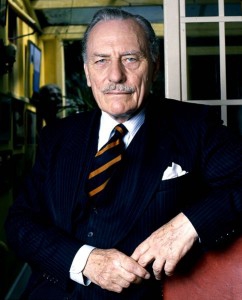 The volume at hand, Standardbearers, seems to have been assembled in the late 1990s to help forge a new middle-way Rightism. It was the early Tony Blair years. The Conservatives were in the wilderness, in thrall to Political Correctness, and the respectable Right had lost its way. Tony Blair had a way of dismissing his opponents’ arguments by describing them as “the past.” As Antony Flew describes in the Foreword:
The volume at hand, Standardbearers, seems to have been assembled in the late 1990s to help forge a new middle-way Rightism. It was the early Tony Blair years. The Conservatives were in the wilderness, in thrall to Political Correctness, and the respectable Right had lost its way. Tony Blair had a way of dismissing his opponents’ arguments by describing them as “the past.” As Antony Flew describes in the Foreword: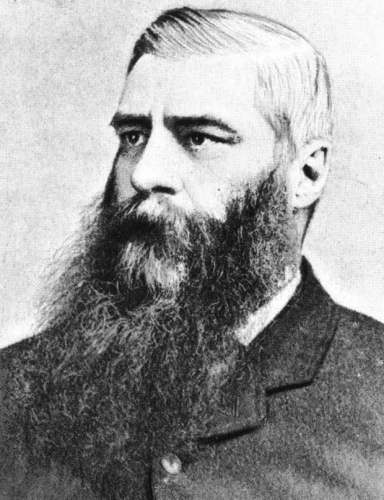

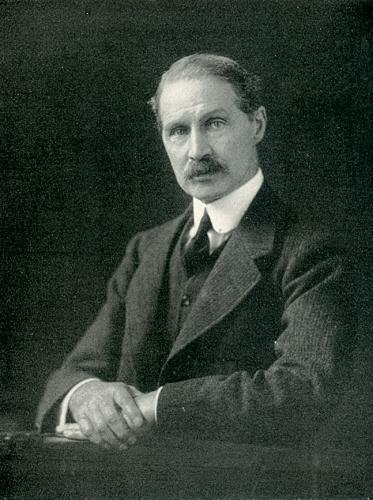





 del.icio.us
del.icio.us
 Digg
Digg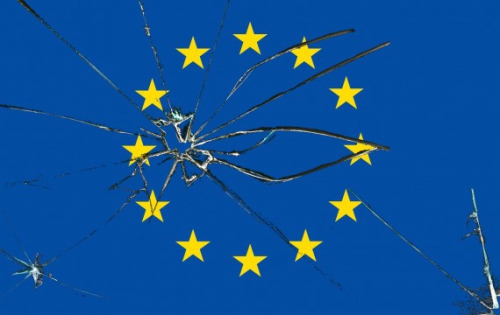

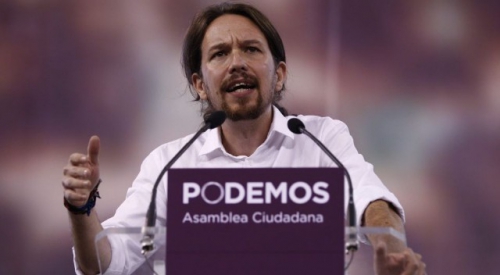
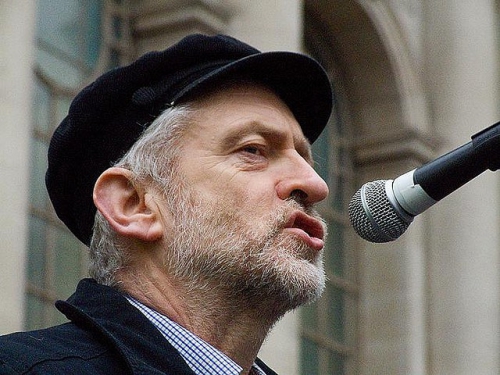



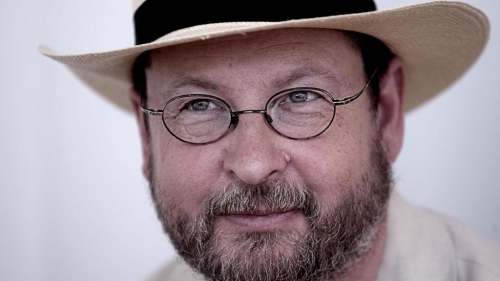
 Lars von Trier, of course, thrives on such reactions. His aim is to disturb and unnerve, to stir the viewer out of his seat and out of his comfort zone. This is done not simply for the ‘shock value’ in itself, as there is no legitimate artistic worth in managing to provoke or enrage the audience; instead this is done in order to communicate something through the shocking material. By knocking the viewer out of his ordinary perspective, where everything is comfortably perceived and organized according to a familiar worldview, Lars von Trier can assault him with a new perspective, a new challenge that might threaten his old way of viewing reality.
Lars von Trier, of course, thrives on such reactions. His aim is to disturb and unnerve, to stir the viewer out of his seat and out of his comfort zone. This is done not simply for the ‘shock value’ in itself, as there is no legitimate artistic worth in managing to provoke or enrage the audience; instead this is done in order to communicate something through the shocking material. By knocking the viewer out of his ordinary perspective, where everything is comfortably perceived and organized according to a familiar worldview, Lars von Trier can assault him with a new perspective, a new challenge that might threaten his old way of viewing reality. J’avoue avoir manqué de prudence lorsque j’ai promis à MÉTAMAG de rédiger une note de lecture sur cet ouvrage. Car je n’avais encore rien lu de l’auteur et je ne m’attendais pas à recevoir un pavé de 650 pages constituées de commentaires sur l’oeuvre de Nietzsche.
J’avoue avoir manqué de prudence lorsque j’ai promis à MÉTAMAG de rédiger une note de lecture sur cet ouvrage. Car je n’avais encore rien lu de l’auteur et je ne m’attendais pas à recevoir un pavé de 650 pages constituées de commentaires sur l’oeuvre de Nietzsche. 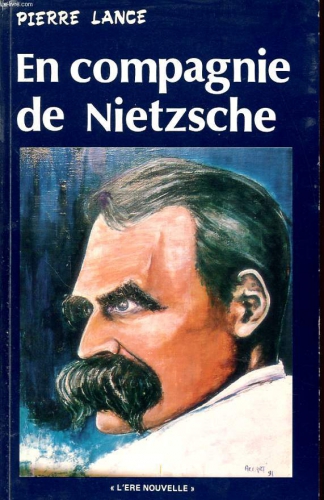
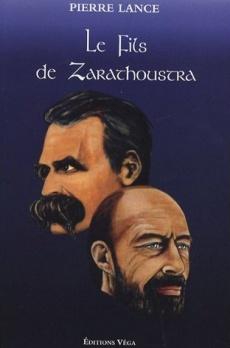
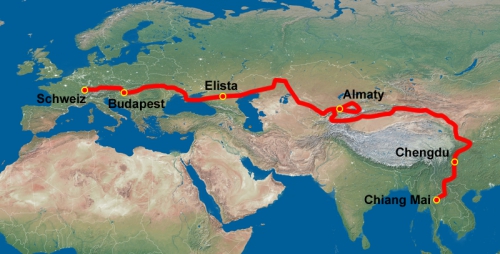
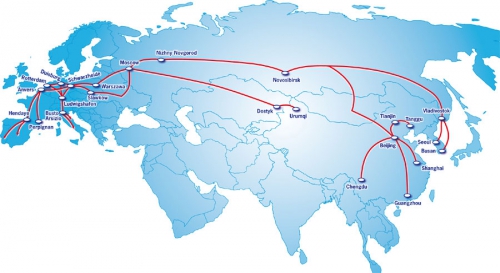
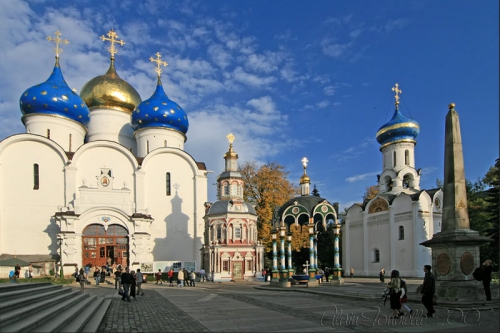
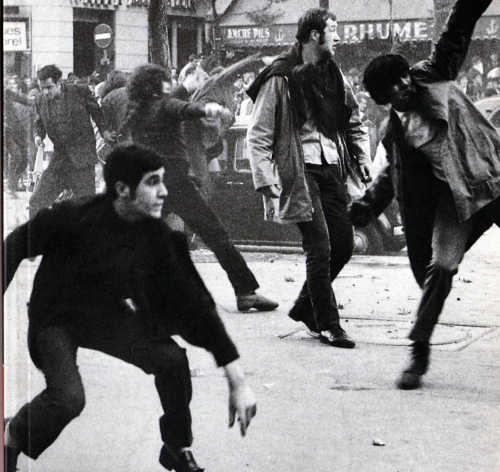
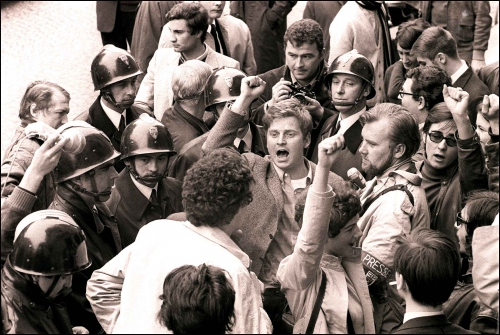


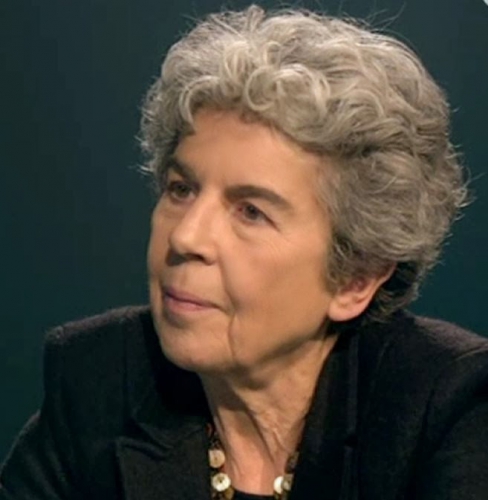
 Pour réfléchir, il convient de prendre du recul. En France, le recul remonte aux Grecs, à l’aurore de la pensée, lorsque la question fondamentale fut exprimée ainsi : Pourquoi y-a-t-il quelque chose plutôt que rien? La superstition, la croyance, laissèrent peu à peu la place à la connaissance et la pensée politique émergea pour réfléchir sur l’organisation communautaire lorsque les niaiseries concernant les dieux, la caste sacerdotale qui parle en leur nom, etc. fut abandonnée en faveur de questionnements plus honnêtes, plus rationnels et plus humains.
Pour réfléchir, il convient de prendre du recul. En France, le recul remonte aux Grecs, à l’aurore de la pensée, lorsque la question fondamentale fut exprimée ainsi : Pourquoi y-a-t-il quelque chose plutôt que rien? La superstition, la croyance, laissèrent peu à peu la place à la connaissance et la pensée politique émergea pour réfléchir sur l’organisation communautaire lorsque les niaiseries concernant les dieux, la caste sacerdotale qui parle en leur nom, etc. fut abandonnée en faveur de questionnements plus honnêtes, plus rationnels et plus humains. 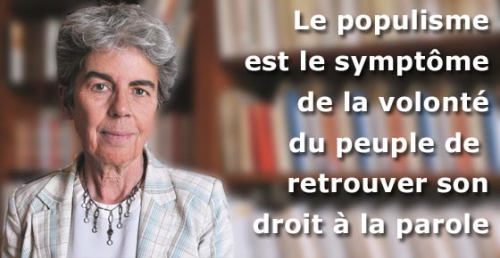











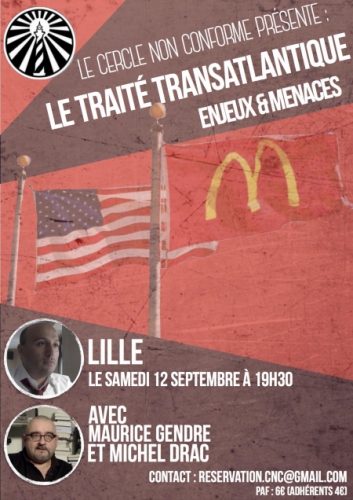
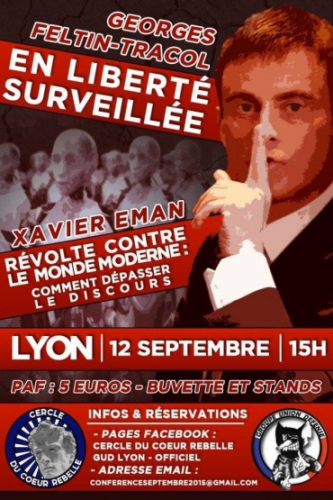
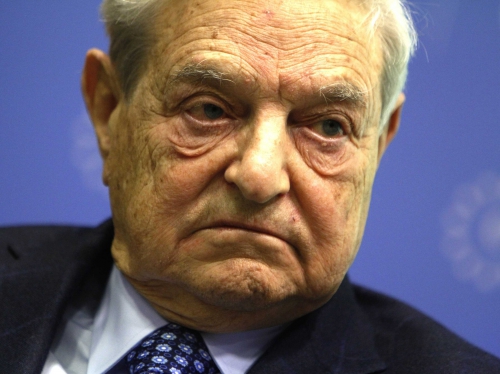

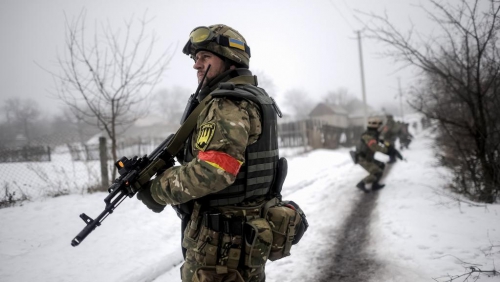




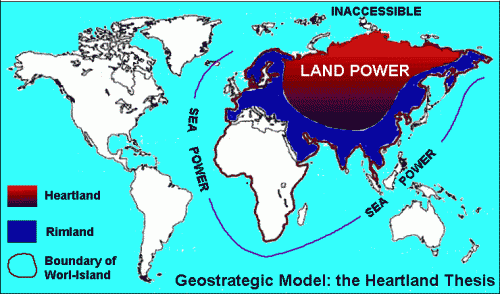
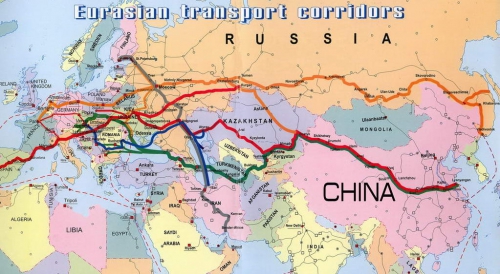
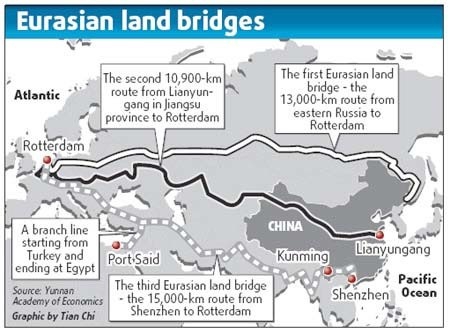
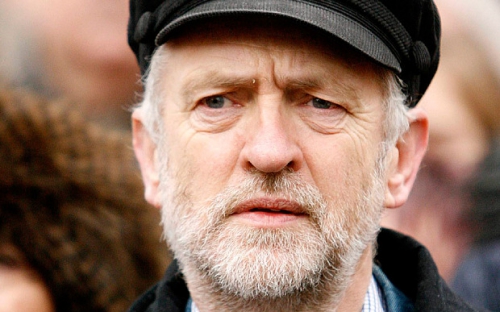
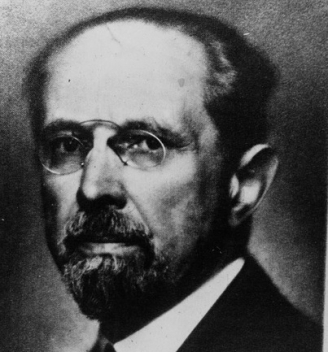
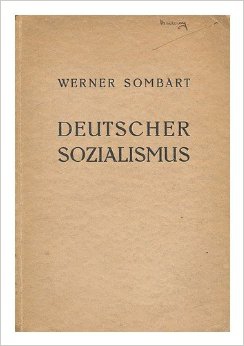 Wiewohl Sombart überhaupt den Einfluss eines säkularisierten Judentums für das Aufkommen von Kapitalismus und Sozialismus hoch anschlägt, so führt er doch nie beide kausal, d.h. schlechthin auf das Judentum zurück. Nur sei das spezifische Gepräge des modernen Kapitalismus wie des modernen Sozialismus „den Juden“ bzw. dem „jüdischen Geist“ zu verdanken, wobei Sombart übrigens letzteren – wie überhaupt alle „Volksgeister“ – von seiner leibseelischen Grundlage für ablösbar und sogar für übertragbar hält.
Wiewohl Sombart überhaupt den Einfluss eines säkularisierten Judentums für das Aufkommen von Kapitalismus und Sozialismus hoch anschlägt, so führt er doch nie beide kausal, d.h. schlechthin auf das Judentum zurück. Nur sei das spezifische Gepräge des modernen Kapitalismus wie des modernen Sozialismus „den Juden“ bzw. dem „jüdischen Geist“ zu verdanken, wobei Sombart übrigens letzteren – wie überhaupt alle „Volksgeister“ – von seiner leibseelischen Grundlage für ablösbar und sogar für übertragbar hält.